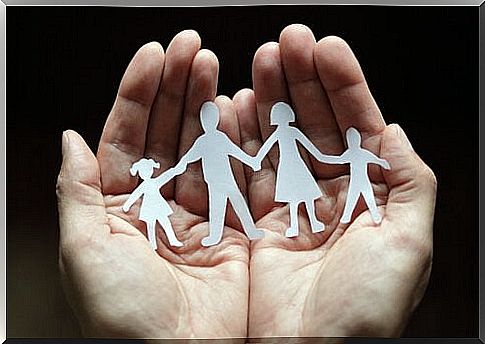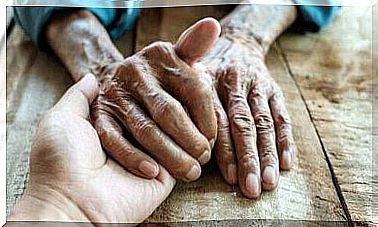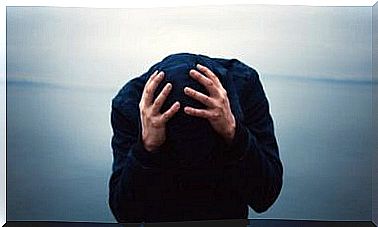When You’re Ashamed Of Your Family

If you are ashamed of your family, it may be because there are loose ends or unresolved difficulties. Considering that most conflicts with our family happen during adolescence, this is when we look at it with a critical and relentless eye. We want to differentiate ourselves and, therefore, we highlight all your flaws and mistakes. It’s a normal part of our development.
However, sometimes these conflicts are not resolved as we mature and persist into adulthood. Let’s say that shame is a feeling in which the fundamental point of reference is the gaze of others. This happens when some aspect of ourselves that we find reprehensible is discovered and we believe others might blame us. The gaze of others is at the center of it all.
When you’re ashamed of your family, in one way or another, it ‘s like you’re ashamed of yourself. Humanity is a great tree and each one of us is like a leaf, which in turn belongs to a specific branch. We are part of that branch. From him we were born and then our life took shape. Similarly, we are part of the family and it is part of us. It is something that constitutes us. Is this shame valid? Should we work to overcome it?
shame as a feeling
A person can feel shame for many reasons. Some of them are reasonable, but others are not. Sometimes we are embarrassed by a fact, a reality or a specific situation. Other times it’s a feeling that goes with us permanently. In extreme cases, we feel ashamed for existing, for being what we are, as if our lives were meaningless.

Without going to these extremes, we can generally say that shameful feelings come from a rigid conscience. More than others, it is our own conscience that raises its hand and points its finger at us. Sometimes, of course, this awareness coincides with the accusing finger of an outsider. However, in this case, the disapproval, ours or someone else’s, is accompanied by another element: it was something we wanted to keep hidden.
That’s what differentiates shame from guilt. In guilt there is disapproval and a certain sense of unworthiness. But what is embarrassing is the fact that there is a kind of invasion of our personal privacy. Something we wanted to keep hidden comes to light. This something is reproved by ourselves; the shame ends up being configured when it is exposed and we assume, or verify, that it is also disapproved by others.
when you’re ashamed of your family
If you are ashamed of your family specifically, it means that there are aspects of your immediate environment that you find reprehensible and want to keep hidden from the eyes of others. These aspects sometimes have to do with an objective reality and are detached from its appreciation.

You may be ashamed of your family because, for example, one or more of your family members engage in illegal activities. In this case, the shame is more than justified, because it is a risk to your good name. However, there are also many cases where the reason for the shame is poverty, or a physical defect, or simply the fact that your family does not fit a certain pattern you have in mind.
In both situations, there is a problem that must be resolved. In both cases, there is an aspect of life that has not been consciously taken up. Shame is the awareness of having two faces and it is healthy to integrate all these aspects or facets. For this, it is necessary to define positions that are consistent with who we are and what we believe.
If you are ashamed of your family for objective reasons, it is advisable to stay away. Not necessarily from your family, but from your actions. You will be able to do this openly and not through concealment. If shame arises as a result of your class or condition complexes, it may be more appropriate to reflect on your values. Perhaps the problem is not your family, but some complexes you carry. It is worth evaluating this.









